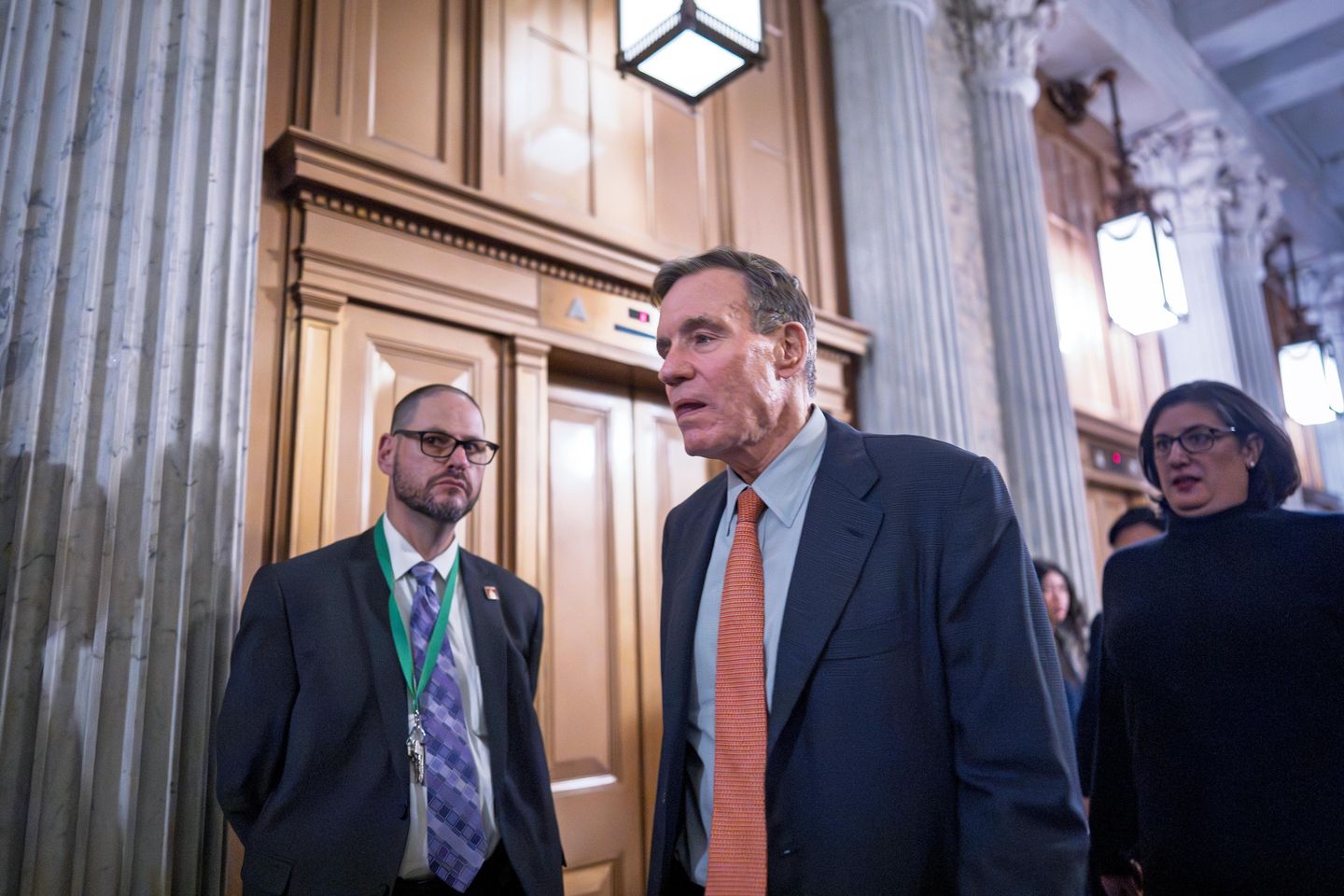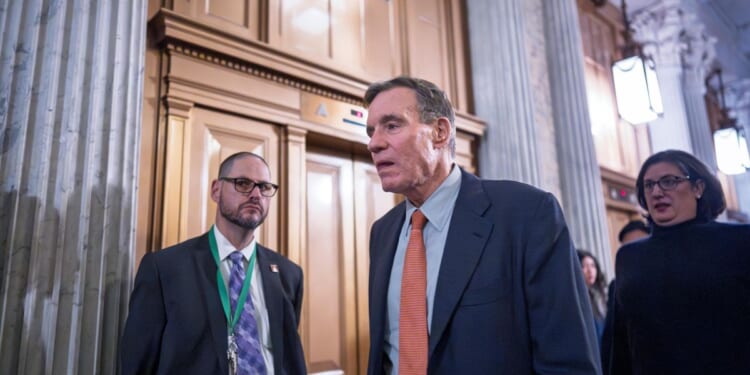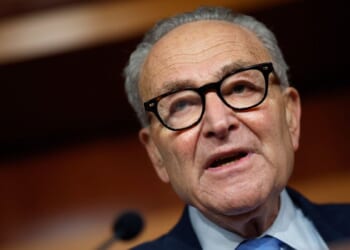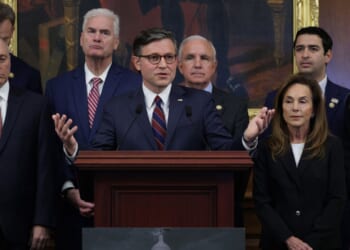
The Senate on Monday night passed a spending package to reopen the government through at least January, after Republicans won a figurative staring contest over an unrelated extension of enhanced Obamacare premium subsidies.
Democrats blinked first, with eight abandoning their party’s strategy to secure an extension of the COVID-19 expansion of Affordable Care Act premium tax credits in the government funding package.
Instead, they secured a promise from Senate Majority Leader John Thune, South Dakota Republican, that the chamber will vote on an ACA bill of Democrats’ choosing no later than the second week of December.
Passage is not guaranteed.
The eight Democrats helped Republicans reach the 60-vote threshold needed to clear a filibuster on the spending measure, and also backed it on final passage.
The spending package now heads to the House, which is expected to vote on Wednesday. If that vote goes according to plan and President Trump quickly signs the measure into law, the government could reopen that day, ending the record-breaking shutdown at 43 days.
The Senate-amended legislation goes beyond a stopgap bill the House passed in September, before departing Washington for the next seven weeks.
It includes full-year funding for three of the 12 fiscal 2026 discretionary appropriations bills, ones that fund the legislative branch and Departments of Agriculture and Veterans Affairs.
“What a way to tell our veterans how much we value their sacrifice and service” ahead of Veterans Day on Tuesday, Senate Appropriations Chair Susan Collins, Maine Republican, said of funding the VA through September.
Food stamp benefits funded through the Agriculture Department will also flow interrupted through at least September. The first-ever suspension of Supplemental Nutrition Assistance Program benefits this month became a key pain point in pushing an end to the shutdown.
The spending package includes stopgap spending for the remaining nine appropriations bills, continuing the prior year spending levels and policies through Jan. 30. The 12-week period is meant to give lawmakers enough time to enact all the fiscal 2026 bills.
Democrats secured language in the spending package to require the Trump administration to recall the thousands of employees laid off during the shutdown and to give them back pay, along with furloughed employees and those who worked during the shutdown without compensation.
The provision also prevents the administration from issuing any new notices of reductions in force through the Jan. 30 stopgap end date.
After the bipartisan breakthrough this weekend, the Senate held a first procedural vote on the spending package Sunday night and worked throughout the day Monday to secure unanimous consent to fast-track the remaining procedural votes and final passage.
All the votes, except for a few failed attempts to amend the bill, were 60-40.
Democrats made a last-minute push to add a one-year extension of the enhanced Obamacare subsidies, but Republicans killed it in a party-line vote.
Republicans, who never supported the Obamacare subsidies when they were enacted or expanded, celebrated their refusal to let Democrats take government funding “hostage” to extract unrelated, partisan policy demands.
Most Democrats expressed disappointment and frustration that Republicans refused to extend the subsidies, saying inaction will double premium costs, on average, for 22 million Americans.
“There is simply no time left to kick the can down the road when it comes to saving the ACA tax credits,” said Sen. Patty Murray, Washington Democrat, noting Obamacare enrollment has been underway for 10 days already.
Republicans don’t appear to be in a rush to extend the subsidies as currently structured, arguing they pad the pockets of insurance companies rather than reducing gross premiums.
“Republicans believe Americans deserve high quality, affordable health care,” Majority Whip John Barrasso of Wyoming said. “Americans haven’t gotten that since the day Obamacare became law.”

















